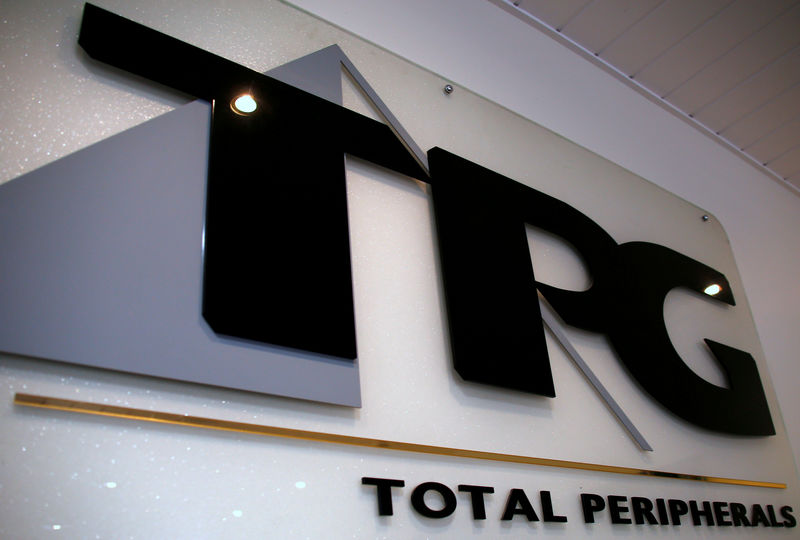By Byron Kaye and Paulina Duran
SYDNEY (Reuters) - Australian internet firm TPG Telecom Ltd's best bet to recover from the serious blow dealt by regulators who blocked its $10 billion merger bid with a rival lies with the courts, with analysts doubting any alternative plans can succeed.
The nation's anti-trust regulator blocked the A$15 billion (8 billion pounds) merger of TPG and a local venture of Britain's Vodafone Group (LON:VOD) Plc on Wednesday citing competition concerns, sending TPG's shares tumbling as investors worried about its future growth.
TPG and the Vodafone venture said they will challenge the decision of the Australian Competition and Consumer Commission (ACCC) in federal court and gave themselves time until end-August next year to complete the deal.
Analysts and investors, including TPG's second-largest shareholder, said a court victory was more likely to resuscitate the company's fortunes than if it were to tap alternatives like reviving plans for its own A$1.4 billion mobile phone network that it scrapped in January.
Robert Millner, chairman of investment company Washington H Soul Pattinson and Co Ltd which owns a quarter of TPG, said the company was counting on a court victory and had no plans to revisit building a mobile network.
"We just don't have the financial capabilities to do that. We are stretched to the limit in our borrowings," he said in a telephone interview on Thursday.
Though the ACCC first raised antitrust concerns about the mega-deal in December, investors and analysts were surprised when the regulator blocked it on grounds that it may impede competition in the future.
Since TPG is a fibre internet company and Vodafone mainly sells mobile phone services, investors believed the companies had shown they were sufficiently different to be allowed to merge.
Their confidence appeared to be boosted in January when TPG scrapped plans for its own mobile phone network, citing an Australian government ban on the controversial Chinese parts supplier it had contracted, Huawei.
The ACCC ruling noted TPG's exit from the mobile phone market but said the company had "the capability and commercial incentive to resolve the technical and commercial challenges it is facing".
Competition lawyers and analysts said the companies might succeed in court.
"TPG doesn't currently compete, and the ACCC's theory that absent the merger they would be likely to enter and compete aggressively, that is a difficult hurdle," said Elizabeth Avery, a partner at law firm Gilbert & Tobin's antitrust group who is not involved in the case.
Credit Suisse (SIX:CSGN) analysts said the companies' prospects "will likely be better in the Federal Court ... however any favourable outcome for TPG remains uncertain, with potential for the court process to drag on over the next 12 months".
ACCC Commissioner Rod Sims told the Australian Broadcasting Corp the government body "always understood the prospect of court action ... and we believe we've got a very strong case to put".
PLAN B
Options that TPG has include resuming the rollout of the network at a higher cost, pursuing a joint venture with Vodafone rather than joining the companies, or selling A$1.1 billion of mobile spectrum it previously bought to a competitor, possibly Vodafone.
"TPG could also shift its focus to Singapore and to try and become a significant player in the SG mobile market (where) it could be more competitive," Bank of America (NYSE:BAC) Merrill Lynch analysts wrote in a note.
JPMorgan (NYSE:JPM) suggested TPG could re-visit plans to build a mobile phone network with another parts supplier and go after the customers of the No. 1 and No. 2 players, Telstra Corp Ltd and Singapore Telecommunication's Optus.
Rival parts suppliers Nokia (HE:NOKIA) and Ericsson (BS:ERICAs), which analysts have said are more expensive than Huawei, declined to comment.
"The court's decision will likely determine TPM's fate as a business as we don't see many other favourable options for the company if the court rules in ACCC's favour," JPMorgan analysts said in a note.

Shares of TPG closed flat on Thursday, after falling to a five-month low the previous day and losing 13.5 percent, a sign investors remained uncertain about the outcome.